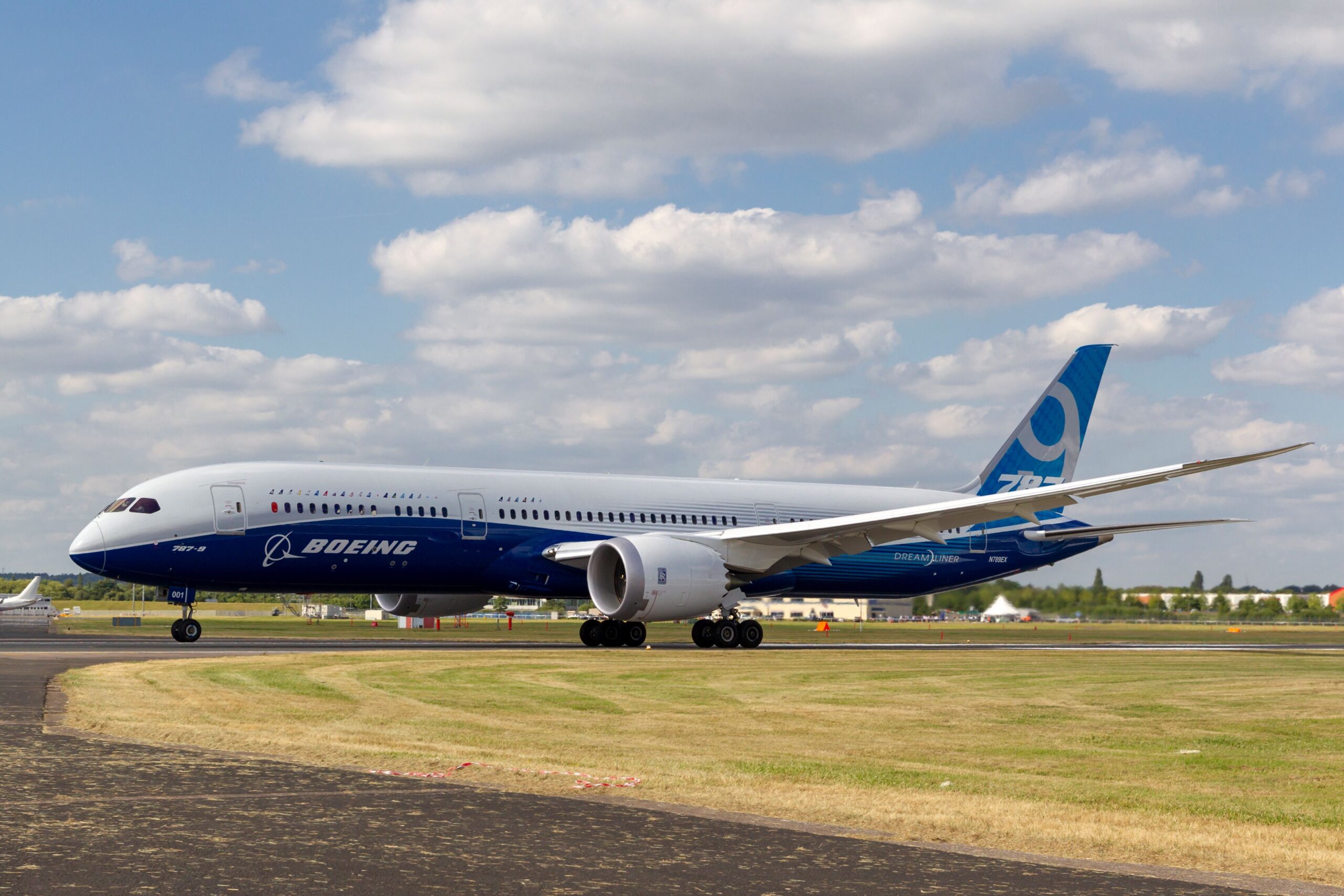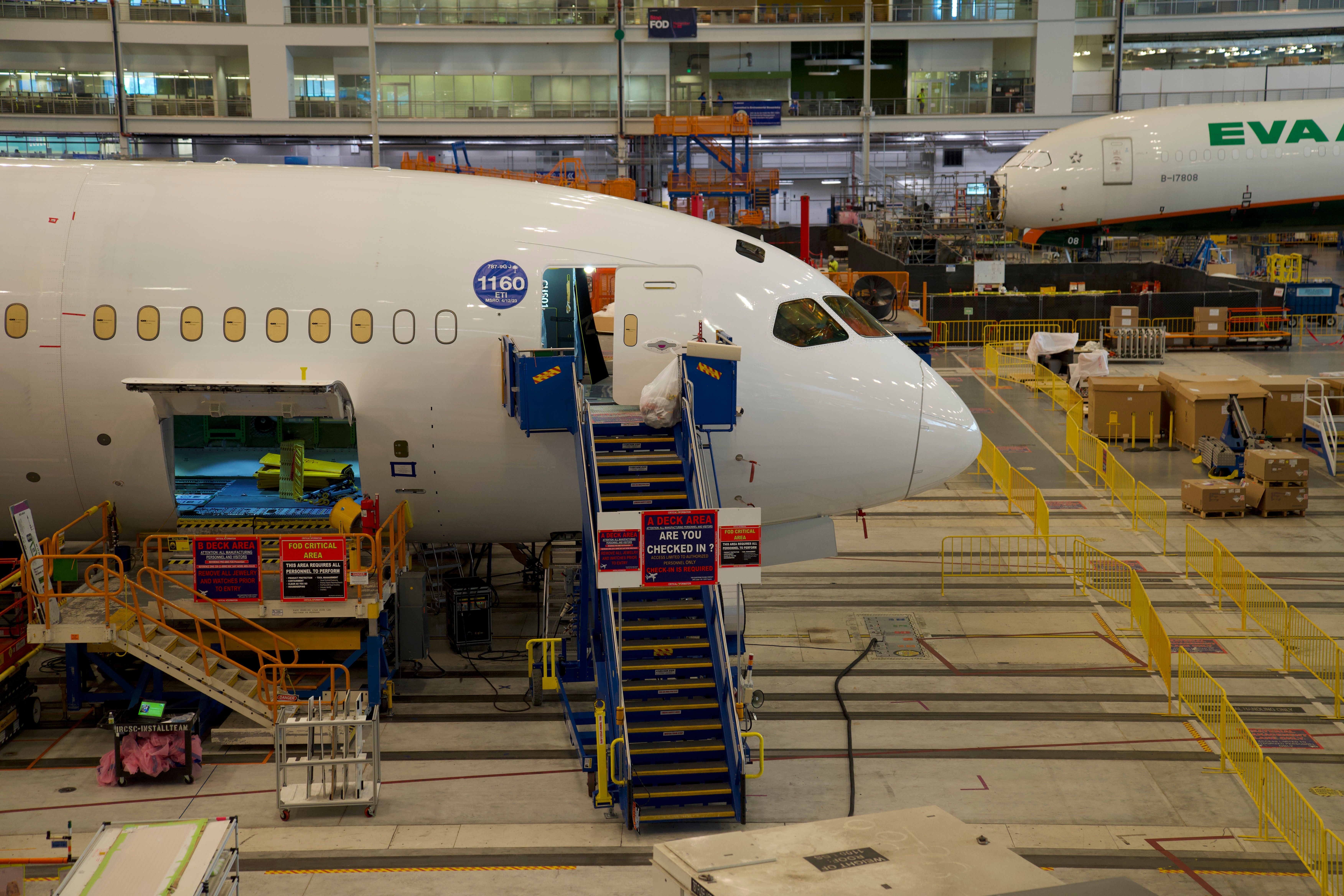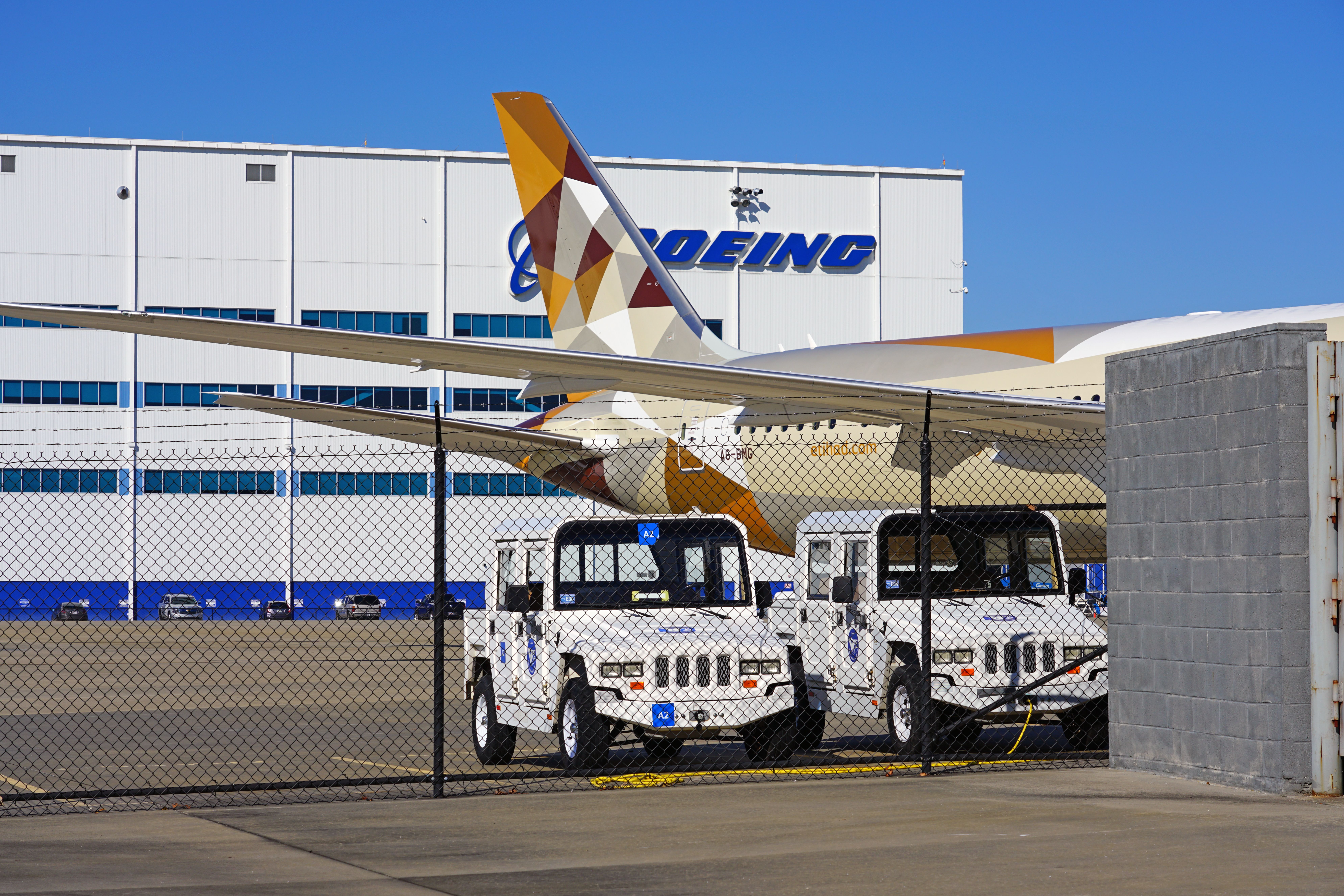Quick Links
The Italian police has accused several individuals and two companies of providing nonconforming fuselage parts for Leonardo, which, in turn, supplied parts for the Boeing 787
aircraft in 2021.
Affecting the 787 supply chain in 2021
Brindisi, Italy-based prosecutors have accused seven people and two companies of fraud and breaching aircraft safety laws after the Italian prosecutors had completed their investigation into suspected nonconforming parts entering the 787 supply chain in Italy
.
According to the Italian news agency Agenzia Nazionale Stampa Associata (National Associated Press Agency, ANSA), two Brindisi companies, Processi Speciali and Manufacturing Process Specification (MPS), had supplied nonconforming parts to Leonardo.
Photo: Lukas Souza | Simple Flying
The parts were in section 44 and section 46 of the 787 fuselage, which is at the center of the aircraft. Previously built by Alenia, they are now manufactured by Leonardo, which then provides the center fuselage pieces to Boeing’s facilities in South Charleston, North Carolina, the United States
.
Italian prosecutors have detailed that the two sections included parts with significantly lower static and stress resistance characteristics, which could have impacted the safety of flight.
ANSA detailed that the two companies used pure titanium instead of titanium alloy, and the aluminum alloys differed from the conforming metals.
As a result, the prosecutors put forth their accusations after completing a preliminary investigation into the matter. During the investigation, they ceased around 6,000 aircraft parts, according to the Italian news agency.
Investigators confirmed that at least 4,829 titanium parts and at least 1,158 aluminum components were nonconforming, with the Italian prosecutors accusing seven people and two now-bankrupt Brindisi companies of the scheme of supplying Leonardo and, in turn, Boeing, with the noncompliant fuselage components.
They presented their investigation after a follow-up investigation that ended in 2021, which resulted in the prosecutors seizing the assets of the two bankrupt companies, three arrests, and the identification of four suspects.
Five years of supply
In 2021, the prosecutors said that the two Italian companies had supplied Boeing with the nonconforming parts for five years, according to a report by Reuters in December 2021, with the report adding that the components were incorporated into 35 787 fuselages.
During Boeing’s Q3 earnings call on October 27, 2021, David Calhoun, the now-former president and chief executive officer (CEO) of Boeing, said that the company had “to track a particular material substitution question that was brought to us by their regulators and track it through every part and in every supplier to us.”
Calhoun added that the aircraft manufacturer did not believe there was a safety issue, with the CEO saying that Boeing had to make sure the 787 was compliant with the material specifications it had designed the aircraft with.
Photo: EQRoy | Shutterstock
When asked whether the Boeing was now only dealing with a titanium component issue, Calhoun responded that it was the “long pole in the tent.”
In 2021, Boeing had to deal with several issues regarding the 787. This included improperly installed fasteners, improper shims, and potential problems with the type’s windows, which followed numerous issues in 2020.
The various problems resulted in Boeing not delivering a single 787 between November 2020 and March 2021 and then from June 2021 until August 2022, when it delivered one 787 each to Air France-KLM and Lufthansa.
Titanium troubles
Nevertheless, titanium has been a – metaphorically – headache-inducing material for the aviation industry, especially following Russia’s invasion of Ukraine in February 2022 and the consequent sanctions imposed by the US and Europe.
During the annual general meeting (AGM) in April 2022, Guillaume Faury, the CEO of Airbus
, said that imposing sanctions on Russian titanium would cause issues for the European planemaker.
A month prior, Boeing confirmed that it had stopped buying the element from Russia, according to a report by the Wall Street Journal.
In April, Airbus had to secure a waiver from the Canadian government after it sanctioned VSMPO-AVISMA, the self-described world’s largest titanium producer, allowing the aircraft manufacturer to use the Russian titanium on the A220
program, which is built through the Airbus Canada Limited Partnership (ACLP).
A January 2023 approved supplier list for the A220 program identified VSMPO-AVISMA as an authorized subcontractor and manufacturer of titanium alloys. However, a Reuters report in late April cited a source familiar with the matter who said that Canada’s approval of the use of Russian titanium was valid for a limited time only.
Still, neither aircraft manufacturer intended to stop using titanium, as it has become a key material in their respective production processes.
Photo: JHVEPhoto | Shutterstock
In June, the Federal Aviation Administration ( FAA
) said that Spirit AeroSystems
, which produced parts for Airbus and Boeing, reported cases involving falsified documents related to titanium.
At the time, the supplier’s spokesperson said that once Spirit AeroSystems titanium with counterfeit records made it into its supply chain, the company had “contained all suspected parts to determine the scope of the issues.”
The fake titanium could have been used on A220, 737 MAX
, and 787 aircraft. At the time, both Airbus and Boeing said that there were no immediate airworthiness concerns.
The New York Times, citing people familiar with the matter, reported that the issue began in 2019 when Turkish Aerospace Industries purchased titanium from a company in China.
Subsequently, the Turkish company sold that titanium to companies that are involved in the global aircraft supply chain, including an Italian business, which resulted in Spirit AeroSystems taking delivery of the potentially nonconforming titanium.
Mandating 787 checks
On May 17, the FAA published a notice of proposed rulemaking (NPRM), alerting 787-9 and 787-10 operators about floor beam side-of-body fittings that have been nonconforming.
The regulator pointed out that the fittings between station 1233 and station 1593 could have an incorrect material type, which was a grade 1 or 2 commercially pure unalloyed titanium. The material has “significantly reduced strength, fatigue, and damage-tolerance properties compared to the type design grade 5 Ti-6AI-4V material.”
“This condition, if not addressed, could result in failure of the fittings. The failure of multiple adjacent fittings may lead to inability of the surrounding principal structure elements to sustain limit loads and damage to critical systems under the floor; these conditions could cause loss of control of the airplane.”
The FAA’s NPRM, which had welcomed comments until July 1, was estimated to affect 60 787s in the US. The proposed airworthiness directive (AD) was based on a ![]() Boeing
Boeing
Alert Requirements Bulletin (RB) B787-81205-SB530084-00 RB issued on December 8, 2023.




